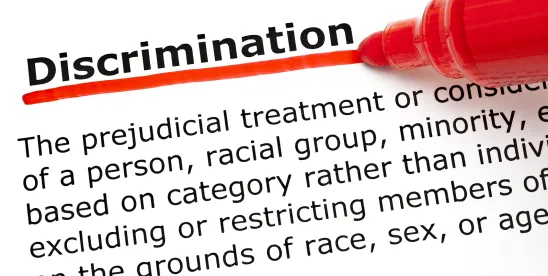On July 29, the Attorney General (AG) of the United States issued a memorandum entitled “Guidance For Recipients of Federal Funding Regarding Unlawful Discrimination” (hereinafter “Guidance”). This alert provides a review of the guidance and recommendations for consideration.
Summary Discussion
The key to understanding this Guidance is to appreciate that it does not announce any new legal requirements. It provides the AG’s perspective on compliance with existing laws on discrimination and affirms the longstanding position of the US government that no form of discrimination will be permitted.
This guidance stresses that well-meaning programs/practices/trainings (hereinafter collectively referred to as “initiatives”) meant to address discrimination should not, in of themselves, promote any form of discrimination. This is not a new premise. Under established law, preferential treatment based on protected characteristics such as race, color, national origin, religion, and sex is not permissible and is viewed as illegal conduct. As stated, this is not new law and should not cause any entity to make changes to any current initiative, unless the initiative that is being used is structured to improperly grant preference based on a suspect classification. Unless an initiative is based on a finding of historical discrimination such as a disparity study, and the initiative passes the legal tests to be legally permissible, an initiative granting preference would be deemed illegal.
The guidance explains that initiatives will be considered illegal if the foundational purpose of the initiative is to provide preferential treatment based on a suspect classification. Again, this is not new law. If an initiative is structured in any way to provide preferential treatment based on any protected characteristic without the proper justification and safeguards, such an initiative is inappropriate.
Impact on Federal Funding
The guidance makes it clear that federal funds should not be used to support initiatives that in any way support preferential treatment based on protected characteristics. Based on what we have seen, there is a strong likelihood that this Administration will suspend and even seek to terminate funding if it believes that an initiative is in violation of discrimination laws.
Key Takeaways
Maintaining compliance with the law involves careful review of initiatives and related documents, including their histories, to minimize the risk of the initiatives being interpretated as having an unlawful purpose. Wholesale elimination or revision of initiatives may introduce additional legal concerns. Timely and comprehensive review by counsel serves to identify and address potential areas of legal exposure.



 />i
/>i
